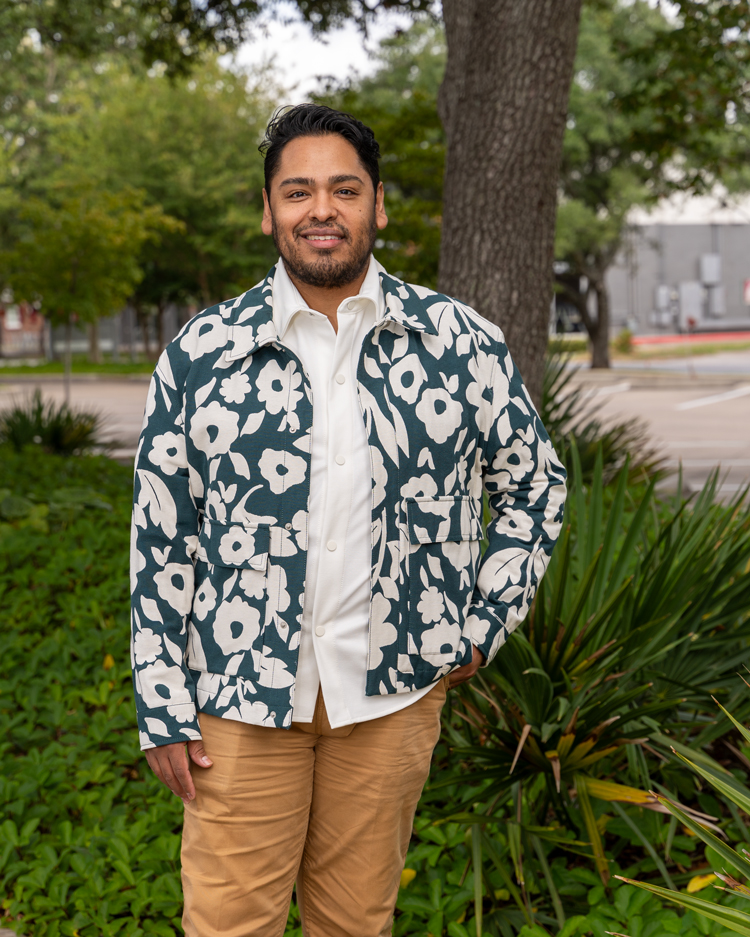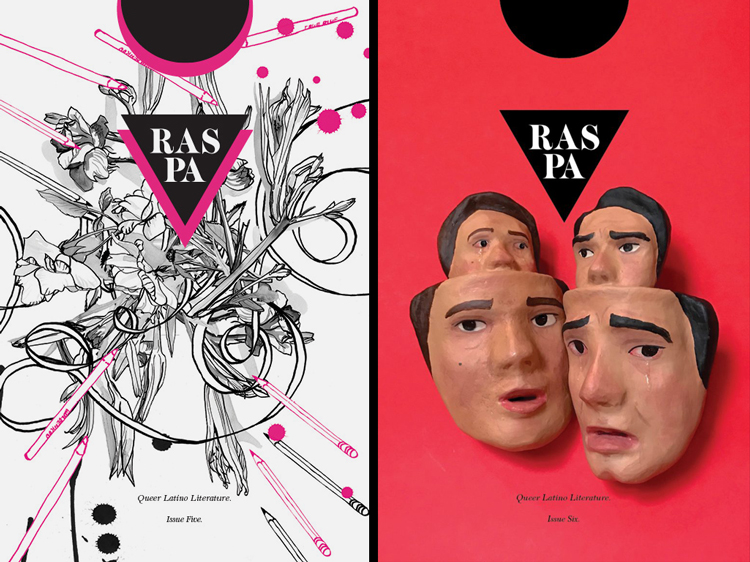A Writer’s Revolution
César Ramos uses his publishing venture to create spaces for Latinx creatives.

When César Ramos embraced his queer identity, he turned to the familiar world of literature for content regarding his lived experience. What he discovered was that the only relatable stories he found were those penned by white female writers. His hunger for queer Latinx media representation led Ramos to found Raspa magazine, a print publication that focuses on the marginalized voices of self-identifying queer Latinx creatives in the US and abroad.
Today, the trailblazer works tirelessly to amplify the queer Latinx experience, both in print and through public events that provide a platform for new literary voices.
The Mexican-born wordsmith explains that coming out to his family was not a negative experience. “If anything, going into the creative arts was more of an issue [for them] than me being gay,” he says with a laugh. “There is a lot of stigma that Latinos have to navigate—from hyper-sexualized perceptions, to having our integrity questioned due to our documentation status and/or financial stability. I had to navigate those when I was engaging with people, in a way I feel many don’t have to even consider.”
Ramos goes on to explain that queer colloquialisms create a language barrier for dual-language speakers. “I have queer language that I can access in English, but it is really difficult to translate into Spanish because those words don’t exist in the Spanish language quite yet. I’ve had to learn how to navigate this duality of language when it comes to queer language and queer writing.”
Early in his career as an editor, Ramos began to explore his identity and ultimately came out as gay. His search for published stories that reflected his own experience led him to find a host of works written by women who were, as Ramos puts it, “writing about sexuality and oppression they faced because of their sex.” Although he could relate, somewhat, to these stories, he was frustrated by the lack of queer Latinx literature. “Why can’t I have greater access to some poetry, essays, and nonfiction works that more closely mirror my own existence—my own experience?” he asked, before taking matters into his own hands in 2012. “That was the inspiration for the magazine. My goal was to make queer stories that closely mirror people’s existence more accessible for people to view, understand, and experience.”

Ramos takes pride in Raspa’s aesthetic as well as its content. “For a long time, creative communities of color have been relegated to other spaces that are not formally recognized. They weren’t welcomed into museums, galleries, or national publications,” he notes. “Raspa started as a zine, and after receiving some funding and community support, we were able to raise the level of quality really quickly. It was important to me that people of color were able to experience the joy and acceptance from a magazine that showcases the importance of their work through a quality publication.”
Ramos was determined to create a print publication that didn’t exist solely in the digital space. “These creators know that someone has enough faith and trust in their ability as writers to invest time, money, and energy to create something that is tangible—something that they can hold on to permanently. I think that’s beautiful.”
In addition to publishing Raspa, Ramos hosts literary events entitled Rough Nights: A Reading Series that feature queer Latinx writers across the US. “For me, reading poetry, fiction—reading anything—is very intimate. It’s between you and whatever book, page, or online blog you’re looking at,” the community advocate says. “Rough Nights brings a connection between the reader and the writer in a way that is more community oriented.”
With events taking place in Houston, New York City, Washington DC, and beyond, Ramos purposefully selects venues that communities of color may not always occupy. “It is important to be able to inhabit these spaces, and show people that even though these people oftentimes cannot financially afford to visit these venues, it won’t stop us from getting the community connected and recognize them for the work that they’re doing.”
Speaking about the impact of the Rough Nights literary events that he’s hosted, Ramos says, “You can build community by reading someone’s work, but it’s a stronger, deeper, more meaningful bond when you can connect a face and a conversation to whatever you’re reading. By doing so, you create a stronger community.”
Ramos humbly shies away from the term “leader” when considering his position in this movement. “I think the term leader relegates everyone else in your community to followers. I like to consider myself more of a facilitator. I make things happen. I have the access and the means to make things happen,” he says. “The success of my community is my success. If I can uplift my community, I am inherently uplifting myself. That’s how I view my role in any project that I choose to do.”
For more info, visit raspamagazine.com.










